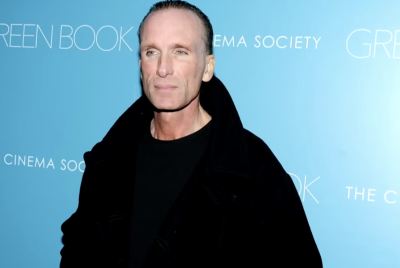Lily Allen Plots 'Career Revenge' On Ex David Harbour Before 'Stranger Things' Premiere
How Allen's new record, interviews and the sale of a Brooklyn home recast a high-profile breakup

Lily Allen's surprise album, West End Girl, and the listing of the couple's Brooklyn brownstone have intensified a very public fall-out with her ex-husband David Harbour, a narrative of betrayal, boundary-busting, and slow-burning retaliation played out in music, property, and resurfaced video.
In interviews, Allen describes the record as 'autofiction', art that blends lived experience with invention — but the specificity of the lyrics, the timing of the house being placed on the market, and the resurfacing of old footage have turned private pain into mainstream scrutiny.
Both Allen and Harbour have given on-the-record interviews in recent weeks that make clear how differently they are framing the same events, Allen as a wounded survivor and creative avenger; Harbour, as a man choosing privacy amid change.
'West End Girl': An Album That Names No One — But Implies Plenty
Allen's West End Girl, released 24 October 2025, reads like a confessional ledger. Across 14 songs, she unpicks a marriage she says began to disintegrate in late 2024, writing about agreed boundaries that were allegedly breached and material details, a separate apartment, sex toys, and messages that listeners and reporters have tied to her estranged husband.
Allen told British Vogue she made the record in December 2024 'as a way to process what was happening', and that it moves between truth and fiction as part of its aesthetic. That interview is the clearest primary source in which Allen both claims authorship of the material and warns readers not to take every lyric as literal fact.

In a feature for Perfect magazine, Allen expanded on the emotional toll of the split, describing a period of crisis and treatment that followed. Her candidness about near-relapse and acute despair lends a grave tone to the album's more barbed moments, and frames the record as therapy as much as warfare.
For fans and critics, this has complicated the usual celebrity gossip cycle, an artist using craft to reckon with personal collapse, while the alleged subject of those songs remains publicly circumspect.
Property, Timing and The Resurfaced House Tour
Two days after the album's release, the brownstone Allen and Harbour purchased in 2021 was listed for sale for approximately £6.32 million ($7.995 million), a move that industry observers and many social-media commentators read as symbolic after such an intimate record dropped.
The property, which featured in a widely viewed Architectural Digest house tour in January 2023, has become a piece of evidence in the court of public opinion. Viewers are re-watching the video for body language, tone, and the odd, awkward exchanges that now seem freighted with meaning. Architectural Digest's own video and transcript remain an important primary artefact for anyone trying to trace the couple's public persona before the split.
Real-estate reporting and listing details have been consistent: the brownstone is marketed as a late-19th-century, multi-storey Carroll Gardens property that the pair substantially renovated after purchase, and its listed price has been widely reported across credible outlets.
The sale, whether strategic, practical, or emotional, amplifies Allen's decision to make a record that centres their private life.
Two Versions of the Story: Allen's Candour Versus Harbour's Reserve
While Allen has spoken at length about the breakdown of the marriage in long-form interviews, Harbour has taken a different tack. In April 2025, he told GQ he was choosing to treat the breakup as 'a period of growth' and avoided tabloid entanglement, warning that engaging with 'hysterical hyperbole' was counterproductive.
That public restraint has not blunted the scrutiny; if anything, it has produced a contrast that fuels interest — an outspoken songwriter versus a private actor. The GQ profile and subsequent press roundly illustrate Harbour's desire to channel turmoil into work rather than public dispute.
The differences in tone are instructive. Allen frames her record and her interviews as a reclamation of narrative, art used to tell what she says happened. Harbour's public posture is to deflect and preserve privacy.
Allen has used songs, interviews, and now a property sale to assert control over a story that might otherwise have been told by tabloids; whether that amounts to 'revenge' depends less on the theatre of release than on how listeners and the industry choose to interpret her evidence.
© Copyright IBTimes 2025. All rights reserved.





















